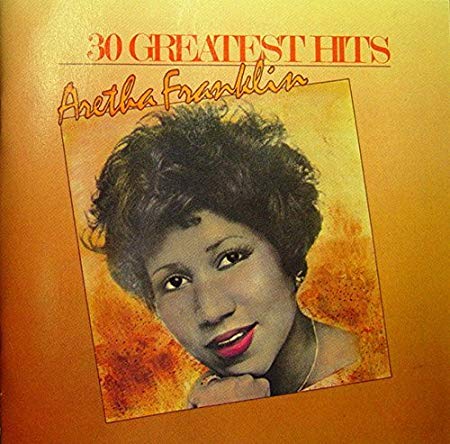Music |
Aretha Franklin: 30 Greatest Hits
By
Published: Aug 19, 2018
Category:
Soul
GUEST BUTLER JOE DEPRETA is a New York strategist, author, and essayist. He has written authoritatively for Head Butler on Sgt Pepper’s 50th Anniversary, John Lennon and Don Henley, and has been published in Rolling Stone and other publications.
From Baby Boomers to Millennials, no one with a radio and a passing interest in music escaped the beauty and uplifting nature of Aretha’s vocal styling. Her gospel-inspired transcendence and her natural unbridled exuberance expressed identifiable emotions that every generation of music lover can relate to, rock genres be damned. From aggressive rock standards (“Freeway of Love”) to daring covers (“Eleanor Rigby”) to love songs (“I’m in Love”) to R&B classics (“Spanish Harlem”) to collaborations with other musical icons (Elton John), she never, ever, rang a false note. Her gospel training infused every production while her Baptist-church- choir inflections and spiritual riffing made her an unparalleled singer. She was one of the few singers whose live performances often surpassed her recordings, her charismatic stage presence making the singer become one with the song. Aretha was miraculous and awe-inspiring.
Witness her now legendary live performance of Paul Simon’s “Bridge Over Troubled Water” at the Fillmore West in 1971. In a sense, this was her own bridge to unchartered waters as she created her own brand of masterpiece, bringing the depth of gospel and the ethereal energy of soul to exalted folk, pop, and country-rock classics-in-the-making.
Her re-arrangement, from the lyrical flourishes to the bluesy-gospel musical lilt of the Simon time-honored jewel, shifted the paradigm of what a singer can do to a song. She gave us original interpretations and displays of what was vocally possible without calling attention to show-offish aural acrobatics. That was part of the glory of Aretha Franklin’s gift, natural, blessed, and spiritual.
Her life was devoted to accomplishment versus fame, though international fame naturally came with that accomplishment. Her altruism and beneficence were unknown to most. She preferred to help humanity without social media exhibitionism, self-aggrandizement, or faux humble posturing. She was always about the music, which will be her evergreen gift to humanity. Her philosophy was “esteem comes through estimable acts” — She was a diva who created no diva-like drama. She collaborated and was mentored by the most tasteful and erudite executives and producers in the business, most importantly Jerry Wexler, Ahmet Ertugun, and Clive Davis — all long-term relationships rare in modern music.
In Rolling Stone Magazine’s 100 Greatest Singers, published in 2010, Aretha Franklin was number 1. This was the only time, among these types of critical lists, when there was no argument, no debate. The 100 best bands, or 100 best guitarists, always have an arguable element. Not here, not now, not ever. Aretha was it, and will always be it.
I’m not a fan of “greatest hits” albums per se because they usually stick to the songs with the most commercial exposure, no deep cuts. Not so here. Sure, “Aretha Franklin: 30 Greatest Hits” includes the commercial hits. But this is Aretha Franklin, and we also get the critical hits beyond the anthems, the cover versions she made entirely her own, and more brilliant songs, some well known, some more obscure, but all magnificent and uniquely Aretha Franklin. For example: “The Weight,” by The Band, has been covered by a number of worthy artists from Joe Cocker to The Staples Singers to Joan Osborne. It’s always risky when any artist covers an iconic song firmly associated with the original. Imagine anyone covering Springsteen’s “Born to Run?” Yet, here she is with Duane Allman on slide guitar, creating a classic out of a classic.
[The CD of “Aretha Franklin: 30 Greatest Hits” is old, and, stupidly, has not been re-issued. To buy it from Amazon at an exorbitant price, click here. The MP3 download is a more sensible purchase. To buy it from Amazon, click here.]
In the ‘80s, when many talented artists who’d made their mark in the ‘60s and ‘70s faded or became obsolete, she stayed relevant while being true to herself. Songs like “Who’s Zooming Who” (with George Michael) became part of the zeitgeist without sacrificing what we loved about her in the first place – compelling vocal, outrageous chord changes, and musical nuances owned solely by the Queen of Soul. She never pandered, she never adapted, and she simply and confidently did what she did better than anyone.
In this most media-centric time, when artistic geniuses leave us, we’re exposed to heartfelt laments, poignant stories, and a week’s worth of 24/7 airplay of their songs and milestones. One of my favorites involves Mark Goodman, one of the 4 original MTV VJs. He tells a great story about meeting Miss Franklin backstage in Detroit at a charity event in the 1980s. After an introductory conversation, she thanked him for exposing more artists and music to the world, and then invited him and his colleagues to her house for dinner. When they arrived, they found her making the dinner — no minions, no entourage, just Miss Franklin making an elaborate meal. After the long dinner and conversation, she refused her guests’ help and said, “I have this, thanks for your company.” Her talent, grace, humility, and quiet dignity were evident onstage, on vinyl, in life.
In this time of turbulence, polarization, and challenges most of us thought unspeakable, I can think of no better antidote than the imposing, glorious, and healing voice of Lady Soul. Her live performance of A Natural Woman made President Obama shed a tear or two. I’ll be playing Aretha Franklin’s 30 Greatest Hits as I drive, and I’ll be wallowing in her glory, tears be damned.
BONUS VIDEO
with Annie Lennox


